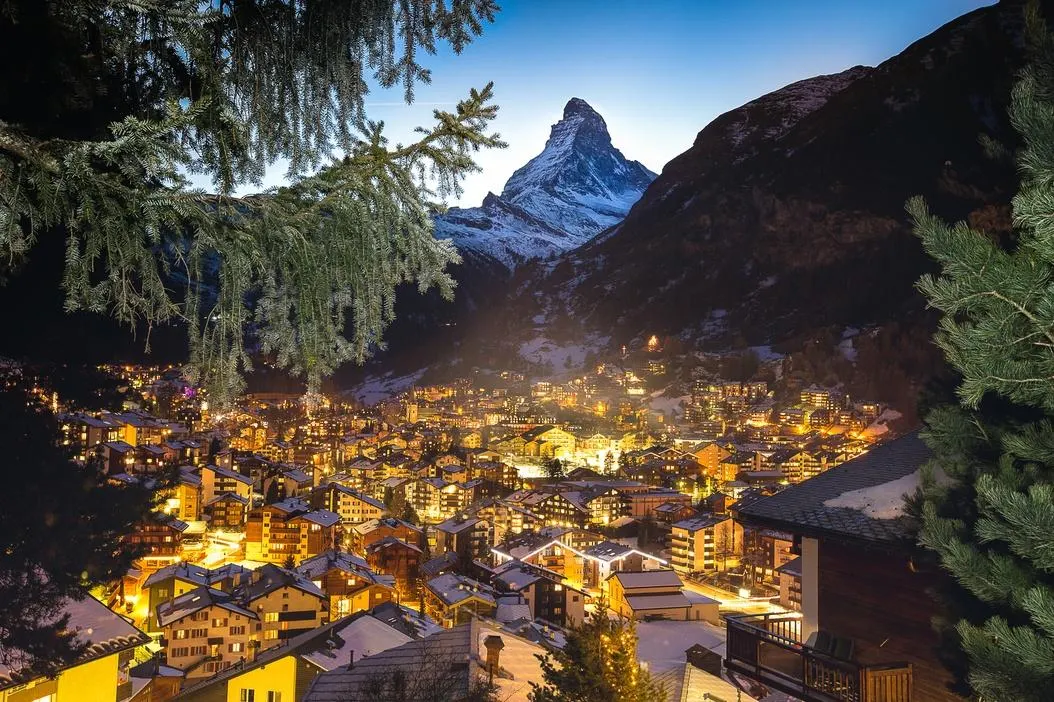Seeking the joy and wonder that comes with epic, off-the-trail travel experiences but worried about the environmental and cultural impact those journeys can have? Veteran travel journalist, author and presenter Dilvin Yasa, employing the advice of experts in sustainability and cultural sensitivities, compiles a must-do list of 10 experiences that combine luxury with responsibility.
This story featured in Issue 13 of Forbes Australia. Tap here to secure your copy.

Exploring a crystalline landscape beneath a pastel polar night, witnessing the theatre of lion hunts in a dusty savannah, and learning from First Nations communities in remote regions; these are travel experiences that captivate and inspire.
Yet, considering pressing global challenges, a critical question must be asked: should we be travelling at all? The travel industry is responsible for at least 8% of global carbon emissions, and the impacts are becoming increasingly evident. Rising temperatures are disrupting services from air travel to popular attractions, while over-tourism is wreaking havoc on local environments and communities, diminishing the experiences travellers seek.
Provided we pursue journeys that prioritise off-the-beaten-path destinations where wildlife and environments are respected and where community welfare takes precedence over profit, all hope is not lost, explains Associate Professor and lecturer in tourism Glen Croy from Monash Business School. “As tourists, we have to accept that we’re part of the problem, so the onus is on us to make better choices regarding how we travel and engage with the community and the natural world around us,” he says. “The products and experiences are available, but we need to select and engage in them.”
Happily, we have 10 experiences to get you started.
Dive into the resort setting the benchmark in sustainability

Some call it a sensory feast where emerald waters kiss golden shores; others settle for Grenada. No matter how flowery the language, it’s hard to dispute Six Senses La Sagesse Grenada’s pride-of-place setting between the Atlantic and an untouched bay, nor the importance they’ve placed on designing its fifty-six two-level pool suites and 15 villas with natural, renewable and repurposed materials.
Randy Durband, CEO of the Global Sustainable Tourism Council, lauds Six Senses for setting a benchmark in sustainability. “Forget onsite recycling programs and solar panels; these guys were so intense in their efforts to become the most sustainable brand around that they even insisted a manufacturer make plastics-free televisions for their properties,” he laughs. The
resort delivers all the luxury amenities expected from an upscale experience, complemented by farm-to-table cooking showcases, sustainable sport fishing excursions and immersive tours highlighting local heritage and, of course, rum.
Let Orient Express Silenseas guide you by the winds
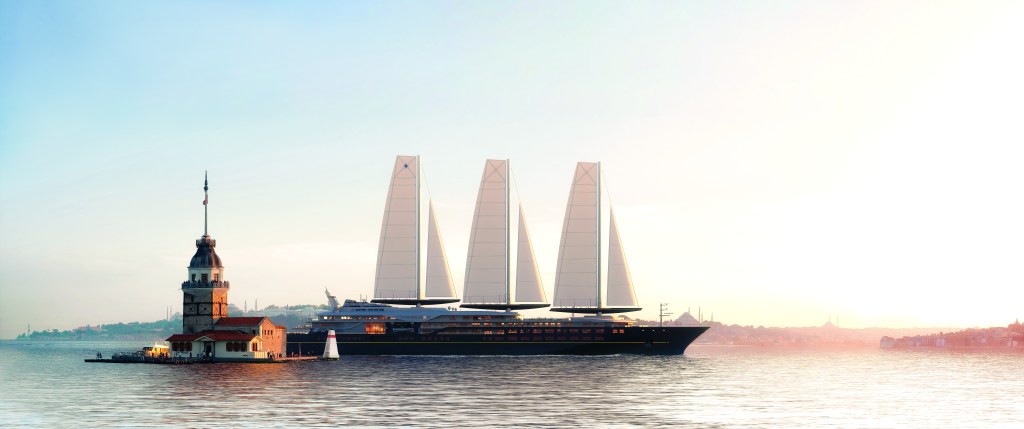
It’s difficult to argue against a travel mode that harnesses nature’s power – something to think about as you take in the magnificence of the Orient Express Silenseas, due to make her maiden voyage in 2026. Inspired by the golden age of the French Riviera, the 220-metre-long yacht may offer unparalleled service and a refined, Maxime D’Angeac-designed aesthetic, but its heart is in meeting sustainability challenges, thanks to its three SolidSail rigs, a revolutionary wind propulsion system, as well as a hybrid propulsion system running on LNG. “Silenseas
will thus become a ship of reference in terms of environmentally-friendly operation and design,” explained Laurent Castaing, Managing Director, Chantiers de l’Atlantqiuem, when the plans for the ship were unveiled. It isn’t all about sustainable sailing, of course; Silenseas will also feature 54 decadent suites (including a 900 sqm Presidential Suite), two swimming pools, two restaurants and a speakeasy bar.
Embrace nomadic Mongolian life
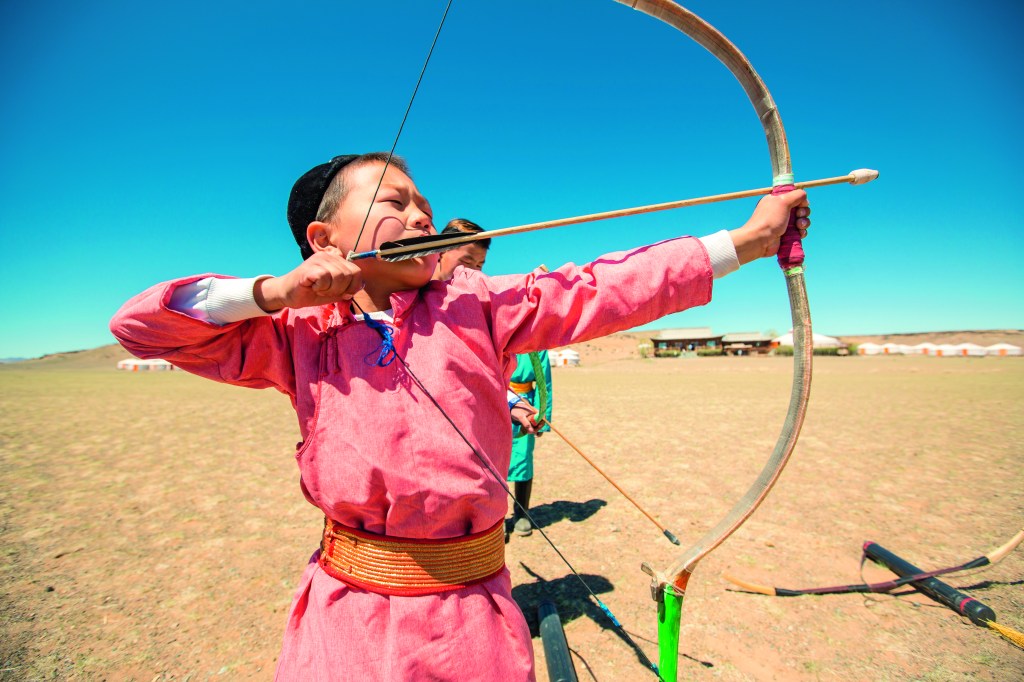
Imagine an untamed wilderness where nomadic traditions, deeply rooted in nature’s respect, blend seamlessly with a rich cultural heritage. Now, add a journey that few have the privilege
to experience. Abercrombie & Kent’s 10-Day Mongolia: Naadam Festival & the Khan Legacy offers just that – an exclusive small group adventure for up to 18 guests. This luxury odyssey immerses guests in the exhilarating Naadam Festival, showcasing archery, wrestling and horse racing, all while indulging in opulent Ger accommodation and taking advantage of those little extras (laundry service, bellboy luggage handling, etc) to ensure a seamless experience. Overtourism? Not an issue for a country still in its international tourism infancy, plus the income generated not only enriches local communities but it also preserves age-old traditions for future generations.
Cruise the remote reaches of the White Continent
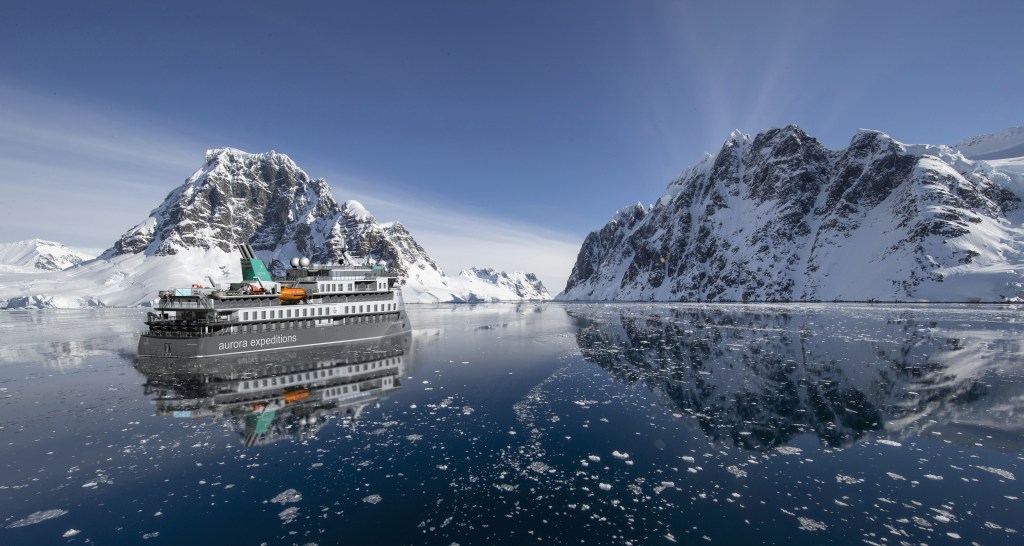
An ice-gripped landscape peerless in isolation and experienced by few. Captivating? Certainly, but is cruising incongruous with Antarctica’s identity as a protected wilderness? “I believe a journey to Antarctica can have a lasting impact on people and enlist them in the goal of living in ways that are less harmful to the planet,” says Elizabeth Leane, Professor of Antarctic Studies at the University of Tasmania, who adds would-be adventurers should opt for an operator who ‘takes the educational side of the experience seriously’. Aurora Expeditions, B Corp and 100% carbon neutral, enables adventurers to do exactly that with the Douglas Mawson, the cruise line’s latest small ship designed to discover the White Continent’s outer limits with minimal environmental impact.
Say yes to a 24-Day Mawson’s Antarctica voyage cruising remote East Antarctica, content in the knowledge you (and 129 other expedition passengers maximum) are enjoying a vessel which features the latest innovations in sustainable cruising, including shore-side electricity capability and the Ulstein X-Bow, conceived for better fuel efficiency. Citizen science opportunities aboard the ship are offered and encouraged.
Stay in a community-minded safari camp
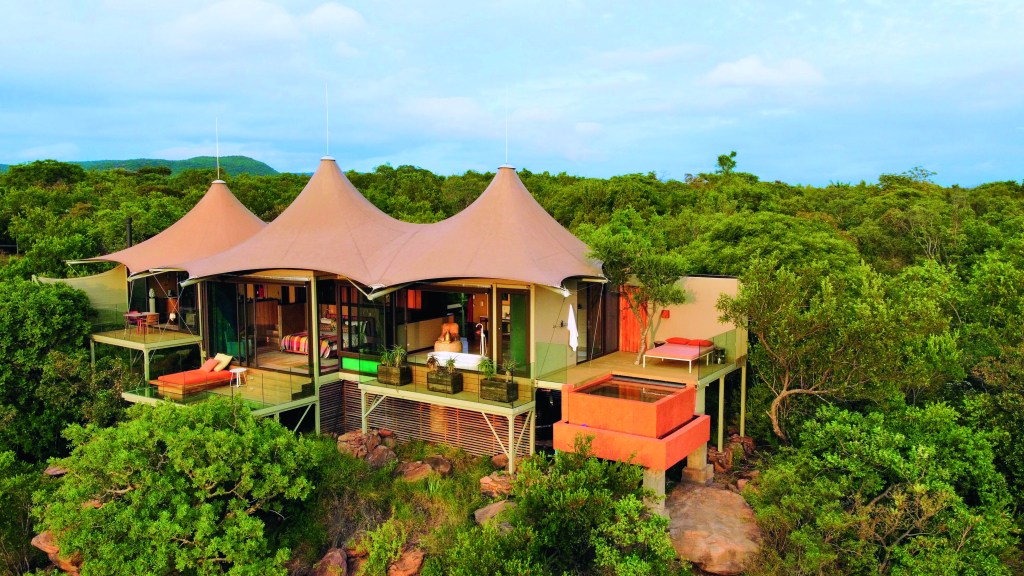
Forget South Africa’s Big 5; offering unparalleled luxury amidst 50,000 hectares within the pristine Lapalala Wilderness Reserve, Lepogo Lodges’ Noka Camp is celebrated for its ‘Awesome 8’: lions, leopards, elephants, rhinoceros, cape buffalo, cheetah, African wild dog and pangolin. Equally impressive, however, is that while this exclusive five-villa property embodies a premium safari experience (private plunge pools? Underfloor heating? Tick, tick), the camp was created as a non-profit venture, Lepogo Lodges’ plunging 100% of its profits back into the reserve to benefit local conservation projects, wildlife and community. Available for exclusive use, their wealth of curated experiences is designed to immerse guests in the heart of what they do. Game drives, water safaris, and bush walks are offered alongside conservation veterinary experiences and a wilderness school visit.
Take a hike tens of thousands of years in the making
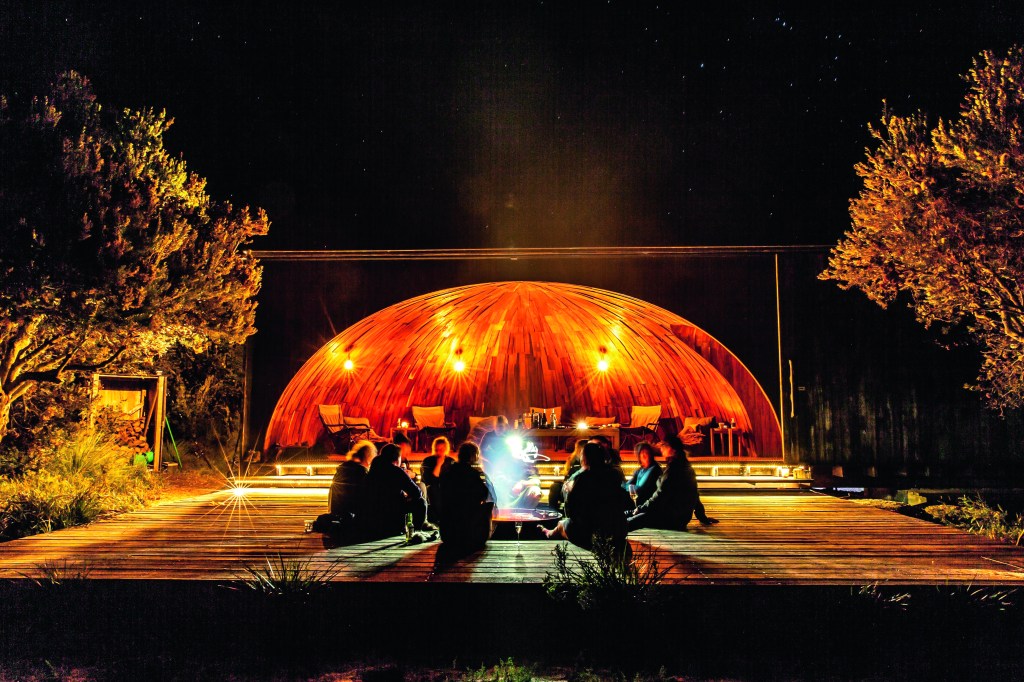
Beyond the architecturally designed Krakanu Lumi camp and the natural, crimson-stone beauty of Larapuna (Bay of Fires), there’s one line in the multi-award-winning four-day/three-night wukalina Walk experience site that stands to attention: “Supporting Palawa-owned businesses contributes to our self-determination by creating more opportunities for the Palawa community to access, manage, protect and care for Country.” It’s just one of many reasons to embrace a First Nations experience for your next holiday, says Janet Mackay, director of TRC Tourism. “When you’re visiting a place of huge importance to a community, you know they’re carefully considering the impact their product has on the local environment and their people and acting accordingly,” she explains. wukalina Walk – a small group hiking tour led by guides with an ancestral connection to the cultural knowledge they share – incorporates Palawa cultural activities, bush tucker and traditional meals within the experience.
True eco-luxury in Costa Rica
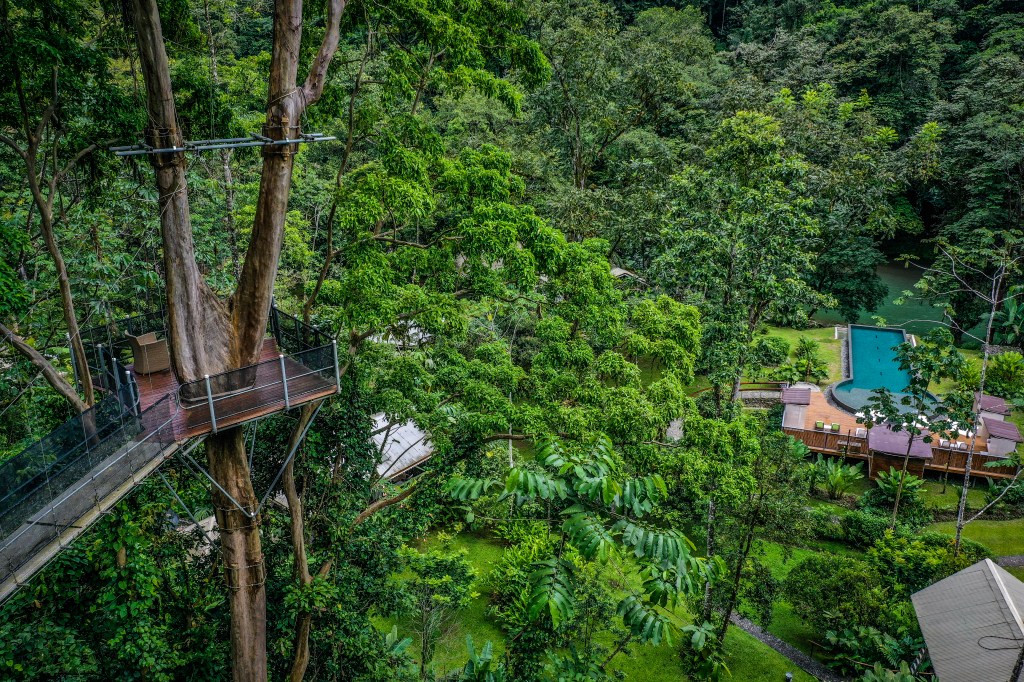
There’s a curiosity that comes with hearing Costa Rica’s minister of environment and energy, Franz Tattenbach, insist that his country is “what the world would like to be, but is not.” Tattenbach isn’t just talking big; 98% of the country is deforestation-free, and renewable energy sources make up 98% of Costa Rica’s electricity, with the country on track to becoming one of the world’s very few carbon-neutral countries.
In a land teeming with high-end eco-lodges, where is the best place to embrace sustainable living? Accessible through an exhilarating whitewater adventure, Pacuare Lodge, a Cabécar-inspired, all-inclusive property of 20 suites, signals its commitment to blend adventure with luxury from the moment guests arrive. Canyoning, rafting and trekking are offered alongside sustainability tours, an Indigenous Cabécar family experience and centuries-old treatments at Jawa Juü Spa.
Ride alongside your cycling hero in Europe
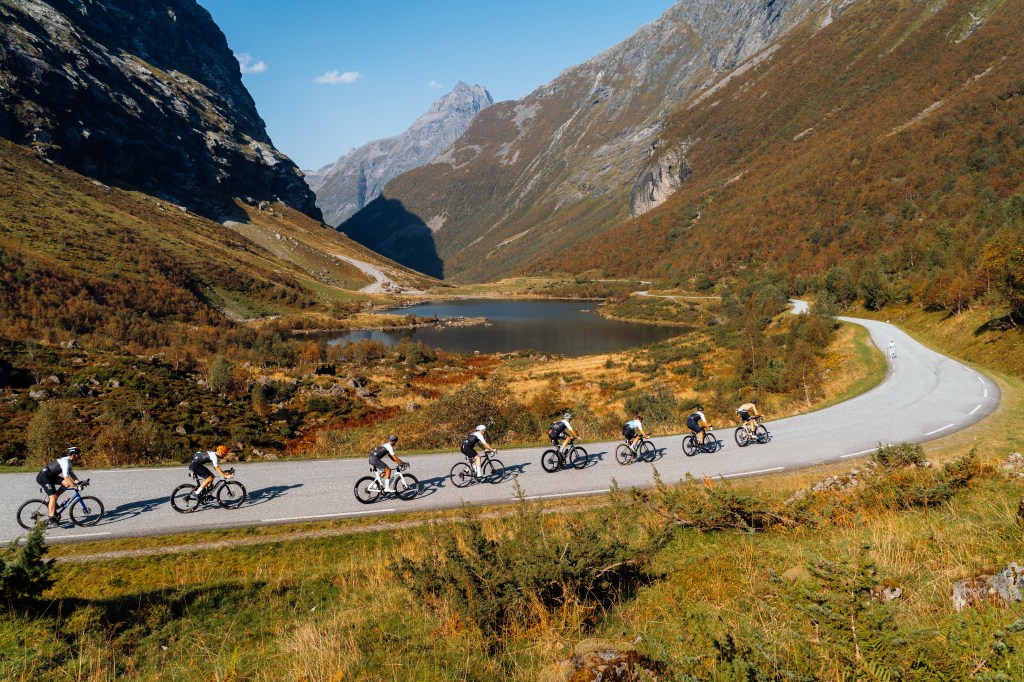
Not so much about sustainable tourism as it is about virtuous tourism; holidays propelled by pedal power are on-trend globally – zero-emission, complete immersion in the local environment, and – if you book a Led by Legends cycle tour with LeBlanq – unapologetically indulgent. Founded by British former pro-cyclist-turned-entrepreneur Justin Clarke, these high-end, boutique tours (led by a cycling legend – think the likes of Peter Sagan and Sir Jason Kenny) blend world-class training with luxury travel, providing participants unique access to legendary routes across Europe and insights from greats of the sport, as well as pre-and post-ride feasting from iconic chefs. A selection of Bianchi bikes is available to test ride across the weekend, and the package also includes a limited-edition kit by Rapha, a team of mechanics to tune your wheels, and hospitality so detailed you can count on massages from soigneurs.
Take a journey steeped in Japanese artistry
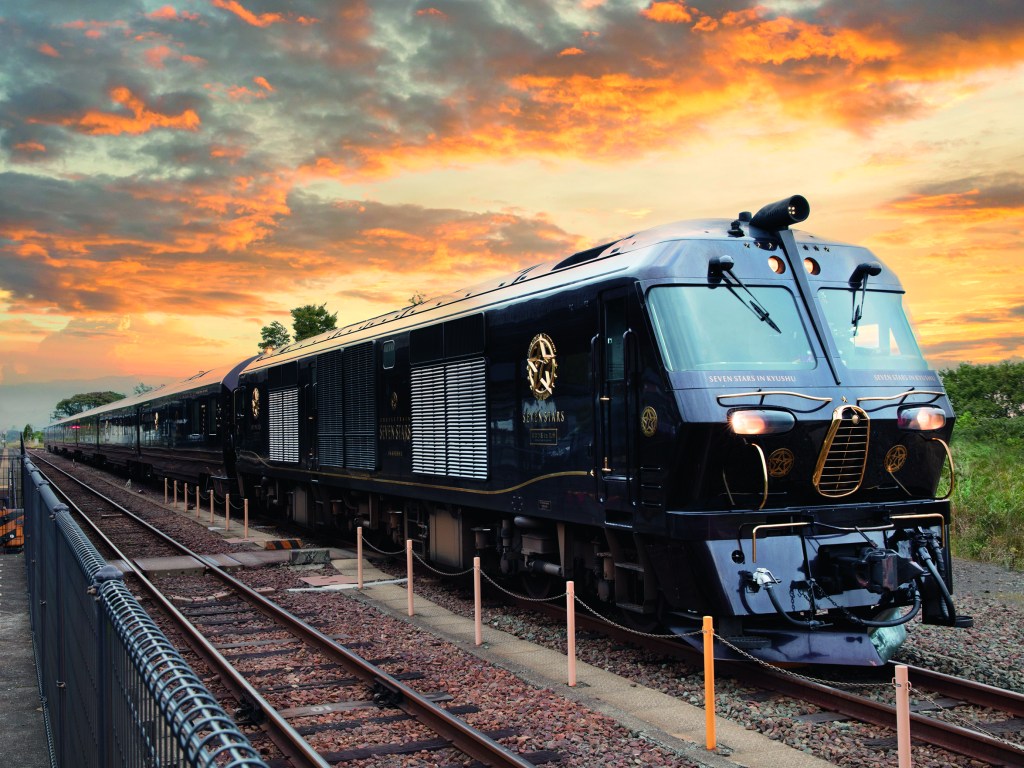
Proving that the journey can rival the destination in allure, Seven Stars Kyushu is less about getting from A to B than it is about immersing yourself in the rich tapestry of Kyushu’s artisan culture, all the while travelling aboard one of the most eco-friendly modes of transportation available.
Featuring just 10 opulent guest suites, plus a lounge, salon, ryurei-style tea room and bar teeming with aritayaki and kumiko designs from Kyushu’s most respected ateliers, seats on this seven-car sleeper – considered the pinnacle of luxury rail travel in Asia – aren’t easy to find (applications are via a lottery system). Persevere; onboard experiences could include a geta (wooden clogs) crafting class, while excursions throughout the multi-day journeys showcase local kilns, each carefully curated moment a celebration of the island’s culture and customs.
Stay in a First Nations-managed wilderness lodge
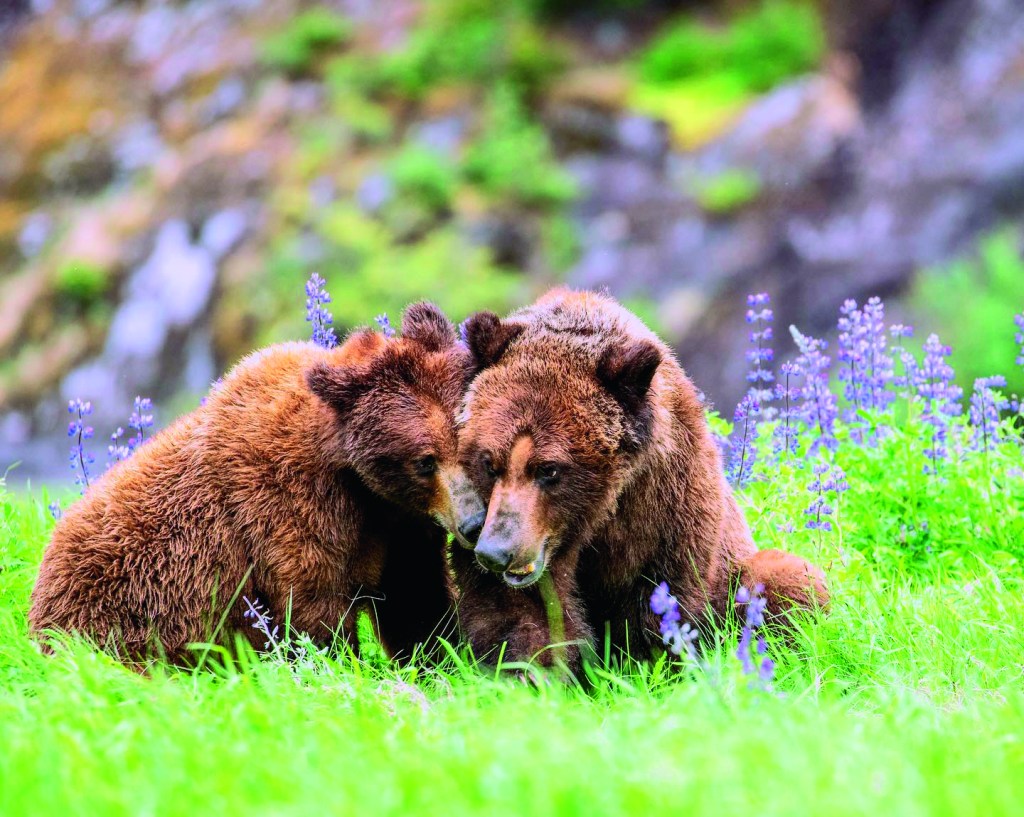
It’s hard to top a lodge that promises ‘transformative wilderness and authentic cultural experiences’, but it’s fair to say that one that also champions social, cultural, environmental and economic revitalisation for Canada’s First Nations’ Kitasoo Xai’xais community sets a new standard. Nestled within The Great Bear Rainforest – home to one of North America’s greatest concentrations of grizzly bears, as well as black bears, ultra-rare spirit bears and myriad marine life – Spirit Bear Lodge has become a successful model for conservation-based eco-tourism, employing 10% of the Klemtu community and offering a wealth of wildlife viewing and cultural engagement experiences by boat and on foot. Ocean-view rooms and heated boat transfers add to the property’s appeal but are no match for embracing a community-led tourism product, explains Associate Professor Croy. “They have the power and control to determine what kind of tourism future they want, allowing them to set mandates and manage their ideal form of tourism.”
Look back on the week that was with hand-picked articles from Australia and around the world. Sign up to the Forbes Australia newsletter here or become a member here.

